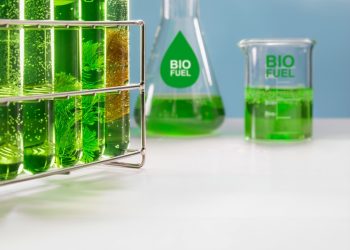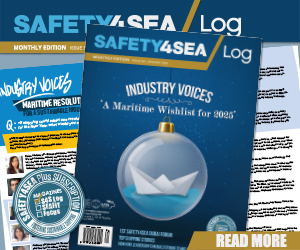As part of is efforts to respond to the increasingly challenging environmental regulations, the South Korean government confirmed unveiled a basic plan to support development of eco-friendly ships.
The ‘2030 Greenship-K Promotion Strategy’ is jointly established by the Minister of Oceans and Fisheries and the Minister of Industry and comes in response of both the implementation of IMO’s GHG emissions reduction plan and the EU’s Emissions Trading System (EU-ETS).
The main goal of the project is the development of leading technology for future eco-friendly ships, in order to reduce GHG emissions by 40% in 25 years and by 70% in the next 30 years. The technology will include advancement of LNG, electricity, hybrid technology, mixed fuel, hydrogen and ammonia.
In addition, in the case of carbon-free ships, the strategy foresees to secure a carbon-free ship technology early through the development of core equipment technologies, such as hydrogen and ammonia fuel cells and fuel storage tanks and fuel supply and propulsion systems.
If technology and economics of eco-friendly technology are verified through small coastal ships pilots, it will spread to large ships for final commercialization.
As such, the strategy will promote the construction of more than 10 demonstration ships applying eco-friendly new technologies, such as LNG bunkering ships and LNG-ammonia mixed fuel propulsion ships.
In addition, the plan will focus on promoting the conversion of 528 eco-friendly ships, achieving a conversion rate of 15%. Priority is applied to commercialized technologies such as LNG and hybrid, preemptively converting from the public sector to eco-friendly ships, and spreading them to the private sector.
Therefore, 199 old government ships will be replaced and 189 ships under 10 years old will be converted into eco-friendly ships by ’30 by installing a fine dust reduction device (DPF). The conversion of 528 ships (15% of the 3,542 target ships) is expected to generate sales of 4.9 trillion won, production of 11 trillion won and employment of 40,000 people by 2030.
Meanwhile, to promote the supply of eco-friendly ships, the infrastructure for supplying eco-friendly fuels such as LNG and electricity will be expanded in stages (from 700,000 tons in 2025 to 1.4 million tons in 2030).
Finally, in order to create a market-led ecosystem for eco-friendly ships, a national certification system for eco-friendly ships and equipment will be operated to provide additional points when selecting a business operator and support international standardization of certified technologies, the Ministry said.
With the smooth implementation of the basic plan, we will actively support the shipping, shipbuilding, and equipment industries to achieve carbon neutrality in 2050 and create a sustainable industrial ecosystem while developing into a new growth engine that leads a new era,
…government officials noted.

































































